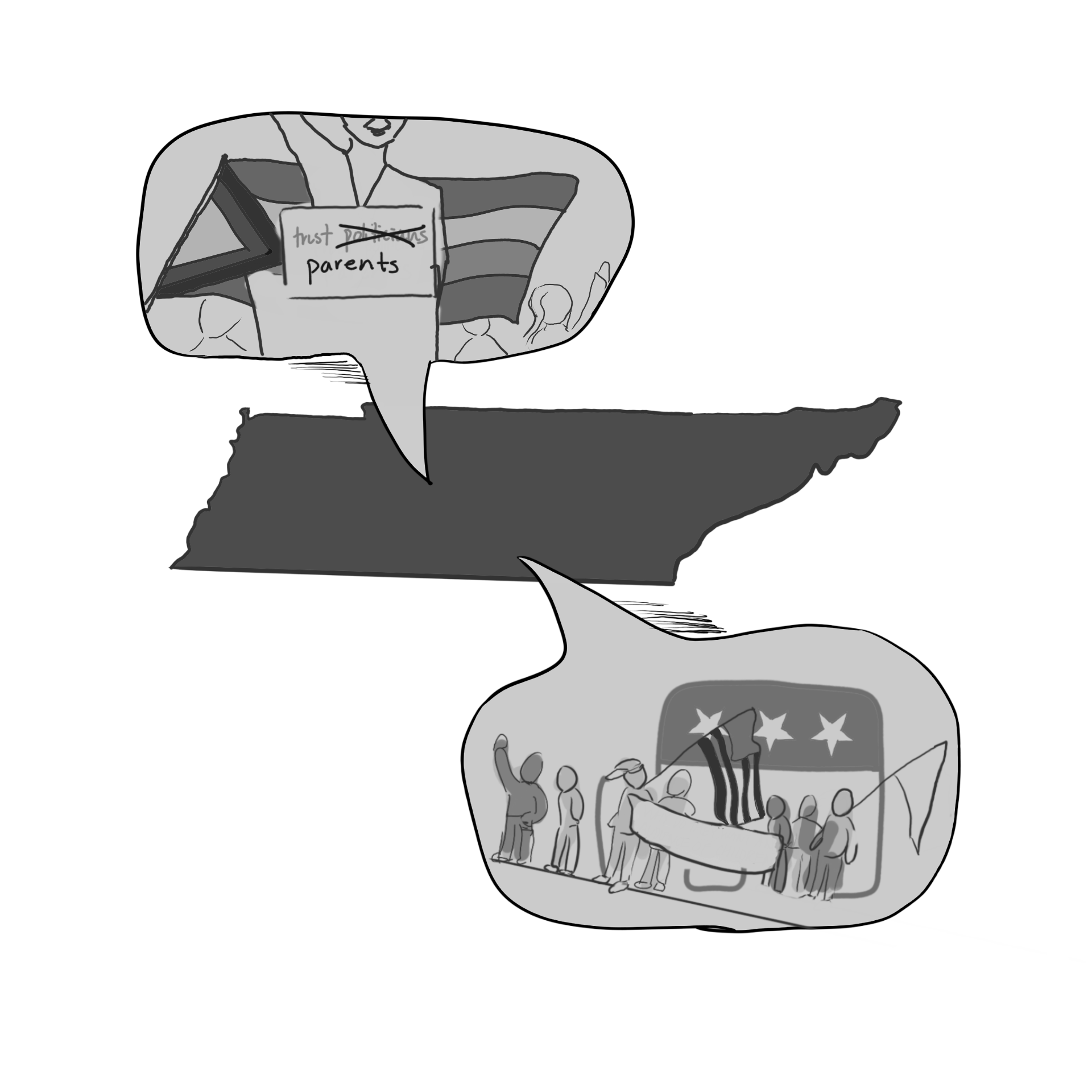The accepting and progressive environment of PHS and the Princeton community can often serve as a bubble, protecting us from all the bigotry that still exists, even in more liberal states such as New Jersey, but especially in the conservative South. Just as the new year commenced, thousands of anti-LGBTQ+ bills have been introduced around the country, and several of them have already passed. One of these bills that has been making recent headlines is Tennessee House Bill 9, which prohibits drag performances on public property or in a location where the performance could be viewed by a minor. This law will lead to child abuse charges being placed not only on parents of children who happen to see the drag performance, but also on the performers themselves and producers of the performance. Another such bill that has recently been the focus of major national discourse is Tennessee House Bill 1, which makes it illegal for minors in Tennessee to access any health care that treats their gender dysphoria, such as puberty blockers and hormone treatments. Both House Bills will go into effect starting July 1, 2023.
The effects that are bound to follow both bills will be extremely harmful to LGBTQ+ people in the U.S., specifically the youth of the community. House Bill 9 is especially likely to bring about a lack of exposure to LGBTQ+ people. Criminalizing public drag performances and explicitly hiding them away from children will not only lead to kids being unaware of the LGBTQ+ identities that exist, but it will also isolate the kids that are actually part of the community. If these identities are hidden away from them, these children will grow up resenting their own feelings. The already harmful concept that this law is based upon, when instigated in a conservative state such as Tennessee, will likely create an even more hostile environment that targets and isolates LGBTQ+ people.
Not only is the state of Tennessee aiming to cut down on LGBTQ+ exposure, but the new legislations are also explicitly targeting transgender and gender nonconforming youth. With this bill, the medications are specifically banned for transgender and gender nonconforming youth, meaning that for cisgender children experiencing early onset puberty, these medications would still be used. The implications of Tennessee House Bill 1 will be a tremendous step backwards in the journey towards equality and justice, as the bill prevents LGBTQ+ youth from accessing medication that treats their gender dysphoria. According to a 2021 study conducted by the Journal of Adolescent Health, 75 percent of transgender and nonbinary youth who did not receive gender affirming hormone therapy experienced recent depression, compared to 61 percent of these youth who did. These numbers also correlated to rates of suicide attemption, which was 57 percent for the youth that did not receive GHAT, and 44 percent for the youth who did. Prohibiting the usage of puberty blockers and hormone therapy in minors will only lead to a greater likelihood for mental health issues in transgender and gender nonconforming youth, and it’s important to discuss why this is an issue and how we can prevent it from spreading.
These two bills are specific to Tennessee, but don’t let that fool you into presuming that this problem is singular to that state. In the U.S. alone, we have already seen hundreds of other anti-LGBTQ+ bills introduced this year in states such as North Carolina, Oklahoma, and Montana. Luckily, New Jersey is unlikely to pass bills similar to these since we do live in a liberal state. However, that does not mean that we as PHS students and staff should not advocate for awareness regarding these bills, and advocate for the limitation and hopefully termination of these legislations. At PHS we should amplify the voices of LGBTQ+ individuals, which can be done by placing a spotlight on the Gender and Sexuality Alliance club, as well as encouraging Pride celebrations and protests all year long.
It is imperative that at PHS, we continue to fight for LGBTQ+ acceptance. Even though we might not be able to single handedly control the legislations passed in other states, we can still make sure our voices remain powerful. In these distressing times, LGBTQ+ individuals are being explicitly attacked, and at our school we must speak up against these hateful, harmful bills, and provide support for our LGBTQ+ friends and peers.
